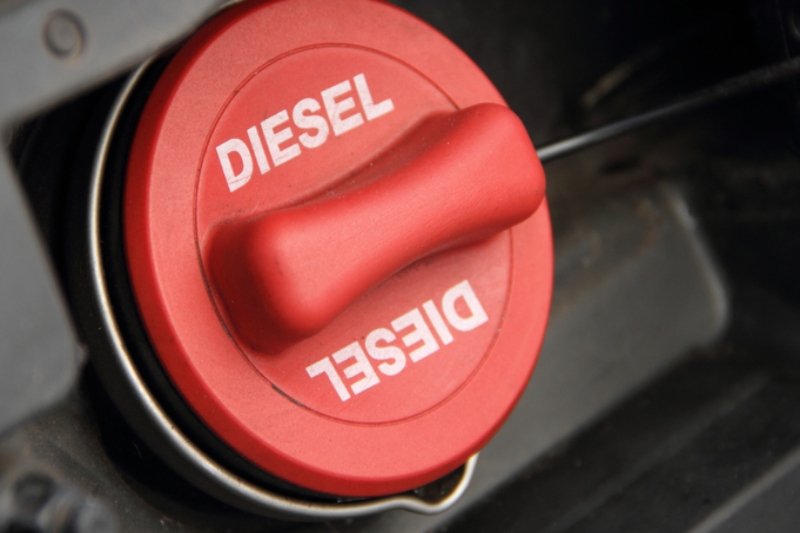Brian Ritchie, chair of Resource Management Association Scotland (RMAS), urges the Government to rethink its plans to ban red diesel.


From 1 April the waste and recycling sector will lose its entitlement to using red diesel in plant and equipment. This will result in our members (along with companies from a range of other industry sectors), having to use higher priced white diesel. This will not only have a significant financial, operational and investment impact across key industries, but will also have a profound effect on customers, suppliers, contractors and, ultimately, consumers.
Earlier this month, Resource Management Association Scotland (RMAS) issued a warning about how the ending of the red diesel exemption will drive up prices and contribute to the cost-of-living crisis. A poll of our 72 members suggests that costs will rise by around 15% with companies facing additional fuel expenses of between £100,000 and £400,000 per year. For an industry which is already under heavy financial pressure, partly due to its high level of investment to improve processes to promote greater sustainability, this additional cost burden being imposed at this moment in time threatens the future of many businesses. The waste industry is already a highly competitive marketplace with high operating costs and thin profit margins. With the loss of exemption, the cost of recycling will have to increase to maintain these margins.
The red diesel ban comes with good intentions as the Government is seeking to reduce the level of fossil fuels being used within industries like ours. The problem is that we currently don’t have any viable alternatives to hand.
Many companies have explored shifting to alternative fuels, such as electric, biogas, hybrid and biodiesel. However, the opportunities for switching the majority of mobile, static and process plant and equipment to these other options are extremely limited – and it’s likely going to take several years until this will be possible. This is primarily due to the fact that alternative fuel sources are unable to meet the power, torque and operating time requirements associated with managing heavy loads of waste and recycling.
While RMAS and its members fully support the principle of reducing our reliance on fossil fuels, this lack of any viable alternative means companies will continue to use higher priced white diesel. This refutes the claim that ending the exemption will lead to environmental improvements through the reduced use of diesel.
The red diesel ban could further threaten sustainability as rising recycling costs could lead to increased criminal activity, including further incidences of fly-tipping and other forms of illegal waste dumping from unscrupulous operators seeking to undercut compliant businesses.
The ending of this exemption also presents increased security costs for our members. With the switch from red to white diesel, many businesses will now also be exposed to increased risk of fuel theft due to greater quantities of white diesel being stored on-site. Red diesel is currently not targeted by criminals due to the use of red dye which immediately identifies it as illegal for road-use. Businesses will need to implement additional security measures including anti-syphon technology and increased site security, all of which will further impact on their bottom line.
The UK Government needs to re-think this policy. We are therefore urging ministers to delay the ban or provide additional support for the waste management sector.
We believe our sector has a strong case for extra assistance. Last summer, the Government launched a £40m red diesel replacement competition aiming to accelerate the commercialisation of low carbon red diesel alternatives, an initiative which recognises the challenges associated with the loss of the fuel exemption. While this scheme was open to the construction, mining and quarrying sectors, operators within the waste and recycling sector were excluded.
The ban on red diesel comes with good intentions but, with no suitable green fuel alternatives available at present, it’s an ill-conceived policy. Some of the estimated 15% cost rises facing our members will have to be passed down the line to customers, suppliers, and contractors. These costs will ultimately be passed on to consumers.
At a time when UK consumers are facing the worst cost of living crisis in decades, the extra financial burden of this policy will have a trickle-down effect and make the current situation even worse for hard-pressed households.
The ending of the red diesel exemption with no feasible alternative in its place amounts to a blunt form of taxation. This will only damage the ability of the waste and recycling industry to recover vital resources and unlock their environmental and commercial value.
It’s time for the Government to think again.
Brian Ritchie is chair of Resource Management Association Scotland (RMAS).